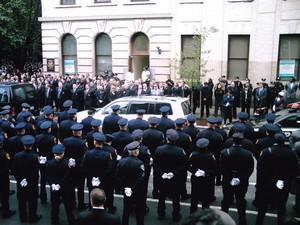PolicingIt is safer to be a cop today than 50 years ago
There is no doubt that policing is a dangerous profession. But is it safer to be a cop today than it was fifty years ago? Yes, according to a study that analyzed police officer deaths (felonious and non-felonious) in the United States from 1970 to 2016.

Study: Fewer police deaths today than in the past // Source: flickr.com
There is no doubt that policing is a dangerous profession. But is it safer to be a cop today than it was fifty years ago? Yes, according to a study that analyzed police officer deaths (felonious and non-felonious) in the United States from 1970 to 2016. The study represents one of the most comprehensive assessments of the “dangerousness” of policing to date and provides an important historical context on the ongoing dialogue over a perceived “war on cops” in recent years.
Researchers from Florida Atlantic University, Arizona State University, and the University of Texas at El Paso, found that despite increases in violent crimes, the hazards of policing has dramatically declined since 1970 with a 75 percent drop in police officer line-of-duty deaths. FAU notes that the study also refutes the theory of “war on cops,” following the Ferguson effect and Michael Brown’s death in August 2014, and finds no evidence to support those claims.
“On average, there were slightly more than 1.6 fewer felonious police officer deaths per month after Michael Brown’s death in August 2014 when compared with pre-August 2014,” said Lisa Dario, Ph.D., co-author and an assistant professor in the School of Criminology and Criminal Justice in FAU’s College for Design and Social Inquiry. “This result directly contradicts the hypothesized war on cops, in which an increase in felonious killings after August 2014 is predicted. Our results show the opposite. In the context of nearly 50-year monthly trends, our results show a statistically significant decline in felonious killings of police after Michael Brown’s death.”
Results of the study, published in the Journal of Criminology & Public Policy , show that felonious deaths dropped by more than 80 percent. The only anomaly is 2001 when more than 70 officers were killed during the 9/11 terrorist attack. The rate of non-felonious deaths also declined by 69 percent. Furthermore, the gap between felonious and non-felonious deaths closed over time. Officer deaths peaked in 1974 at 272; in 2016 there were 134 deaths.
